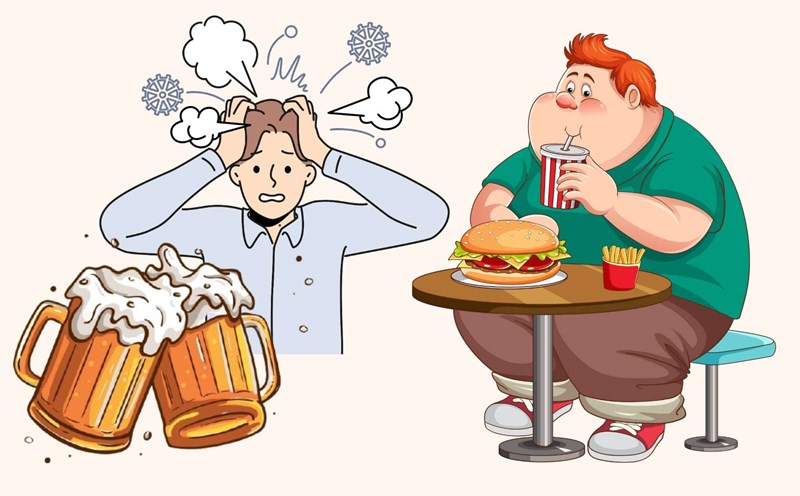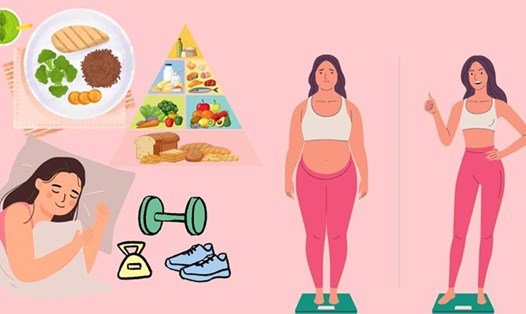Unhealthy diet
Unhealthy diets are the main cause of visceral fat accumulation. Taking in too many calories, especially from refined fructose, trans fats and refined carbohydrates, makes the body easily accumulate belly fat. Fructose in corn syrup, sugary drinks, candy and processed foods makes the liver fat-forming, causing fatty liver, obesity, diabetes and cardiovascular disease. Meanwhile, trans fats and refined carbohydrates also increase blood sugar, stimulating fat accumulation faster.
Lack of physical activity
A sedentary lifestyle causes the body to burn energy inefficiently. When calorie intake exceeds calorie expenditure, excess will be stored as fat - including visceral fat.
Regular exercise not only helps burn calories but also regulates hormones and improves insulin sensitivity, thereby significantly reducing the amount of fat in the abdominal cavity.
Prolonged stress
When stressed, the adrenal glands secrete the hormone cortisol, which increases appetite and promotes fat concentration around the abdomen. This is a natural survival reaction, but in modern life - where stress is prolonged but sedentary - cortisol becomes a "catalyst" that causes visceral fat to increase rapidly.
Lack of sleep
Insufficient or poor quality sleep disrupts two hormones that regulate hunger - ghrelin (stimulate appetite) and leptin (create satiety). When ghrelin increases and leptin decreases, the body tends to eat more, leading to weight gain and visceral fat accumulation.
A deep sleep of 7-8 hours a day helps the body maintain energy balance and limit the formation of excess fat.
Hormonal and genetic changes
Age and hormones also directly affect fat distribution. In postmenopausal women, reduced estrogen levels make it easier for fat to concentrate in the abdomen than before. In addition, genetic factors also play an important role some people tend to store more visceral fat than others despite similar diets and exercise.











